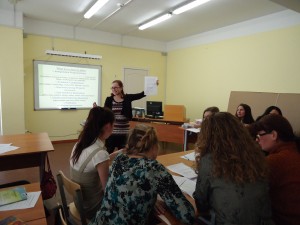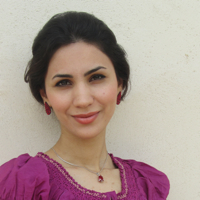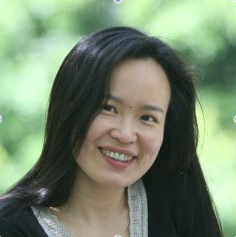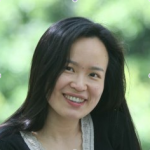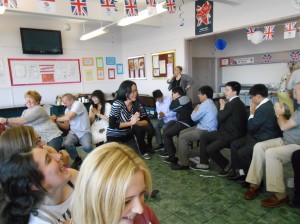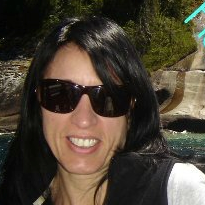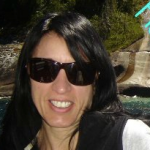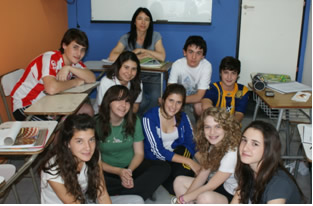Victoria Ostankova is a teacher living and working in Petropavlovsk-Kamchatski in the Russian Far East. She works with gifted children at school and online with disabled children across her region. Victoria believes that every child has potential and that it’s our job as teachers to bring that into being.
What are you passionate about, Victoria?
What a tricky question! I’ve devoted all my life to learning and teaching English. You may say it’s easy. Born in the Soviet Union, it was difficult to sustain my motivation and interest in learning English. I remember my friends laughed at me when I was reading the Morning Star, the newspaper of British communists and trade unions. Where else could I find any authentic and modern English texts at that time? But I never gave up. I was in constant search for books, materials and resources that had helped me stay connected to my passion. That time I read Shakespeare, Henry Fielding, Oliver Goldsmith, and Charles Dickens, etc. – all those writers were my best friends. I never look at English as a foreign language. It seemed to be my second native language that I adored so much! Time passed and nothing has changed. However, the World Wide Net gives you ample opportunities to follow your dreams and learn whatever you want. There’s no need to struggle now in finding something new. Everything is open and at your disposal these days. Just go for it and never procrastinate in your professional development.
How and why did you become a teacher?
My passion and hobby gave a way to my profession. Moreover, I’ve always loved working with children. Also, I can say that I followed this profession intuitively or figuratively: the stars ordered in such a way for me to become a teacher. However, I put so much effort into studying and learning! It was not just a piece of cake, as it seemed at first. Having dreams and living in reality are two differing things. After graduating from the Pedagogical Institute I didn’t go straight to school. Though my schoolteachers said, “she has an innate genius for teaching”, I wanted to become an IDEAL TEACHER.
Interesting, but at a young age, I realized that we needed changes in education. I had a great desire to find something new in educating the younger generation. All this begins with the individual teacher, with my own education and intentions to make the lives of children better. As Aristotle said, “The fate of empires depends on the education of youth”. I still believe that the aim of education – whether at home, at work, at play, or at school – ought to be the teaching of what we call values, not merely funneling information into empty minds. As Albert Einstein put it: “It is essential that the students acquire an understanding of, and a lively feeling for values of the morally good. Otherwise we – with our specialized knowledge – more closely resemble a well-trained dog than a harmoniously developed person”. Everything we know comes through a process of communicating and sharing. Whoever these people are – parents, teachers, philosophers – we are what our education makes us. So, I was hungry for more and more knowledge after my graduation. I didn’t have any ‘moral right’ to go to school and teach students without anything to share.
Anyway, experience is the best teacher. That’s why I started participating in all possible conferences and workshops for teachers. My practical goal was and still is to develop and cultivate my professional teaching skills. It first started with participation in the American Values through Media CD-ROM publication project. Then came the online course Methods I: Survey of Best Practices in TESOL. Also, I attended numerous webinars and delivered lots of teacher training sessions. I want to conclude here by saying that ‘teachers are born not made’ because what I’ve learned from the online courses I’ve taken or books I’ve read, I already knew intuitively and subconsciously. Have you ever had the feeling when starting a book that you know exactly what it will be about? The same is teaching for me.
What are you most interested in right now, VIctoria?
I could give you a long list of all things I am doing and am interested in right now. I guess it’s in my nature to be multitasking. As I work with gifted children right now, I must cater to their academic needs and bright intelligences. This group of students has a specific mindset with well-developed cognitive and metacognitive abilities, so I have to be competent enough to teach and reach all of them. I am glad that the administration of my school trusts me completely and that I am free to choose any material or book I consider to be beneficial for my students. Thus, I’ve made a decision to design the syllabi myself and pick up materials for my gifted learners. I know I must present a lot of educational information to my learners within the limited period of time and teach them how to speak, comprehend, read and write in English. I strive to empower and equip them with learning strategies that will help them succeed in their studies. Now, I also spend more time learning new things to incorporate technology tools into my teaching and learning process, as well as observe the valid rationale of practical and pedagogical uses of technology. Moreover, this year I will be an online tutor for disabled children in my region. As an online tutor, I will try to motivate these special students to grow further and never settle for less.
What’s the biggest challenge you face as a teacher?
My biggest challenge is assessment. I don’t understand the standards of assessment and testing. Who made up all these standards which make our learners feel stressed or even distressed oftentimes? Learning is a lifelong process; we are learning something new every day. What is the point of assessment then? Ministers who never step their foot into the classroom give us tips on how to raise bars and meet national standards. It’s a pity that they mention criteria and never tell about reaching students’ potential. Each student just needs a special route to the destination. Some learners get there faster than others, but they ALL will get there. It takes time and patience. I am happy that my school implements a curriculum in which assessment is informal. We use informal observations, portfolios, and running records to track academic growth of our students. Using rubrics as an assessment tool is considered to be informal as well. By evaluating students by rubrics and by giving feedback to them, we teach our students to plan, monitor and evaluate their own progress and accomplishments. Grading policy is not provided at our school. We observe learners’ achievements and progress during English Olympiads and Linguistic Contests.
What advice would you give a teacher just starting out a journey of professional development?
Listen to your learners and let them voice their opinion. Ask for some kind of feedback. Learners are always helpful in giving constructive feedback. When you teach, try to motivate students and share with them what you know about the world and life. Don’t be too overbearing; guide them to let them find and then discover their own path in life. As Audrey Koh said, “Every child has potential. It’s the teacher’s job to have a keen eye of what each child’s potential is and how to polish it until it shimmers”. So I may add: Never rush into conclusions but observe children’s potential with a ‘keen eye’.
Victoria, is there any blog or online link you’d like to recommend?
I’d like to recommend Shaping the Way We Teach English http://shapingenglish.ning.com/. You can find lots of resources and materials there for your professional development. This ning site is frequently updated with new webinars and various topics on pedagogy and methodology. It’s moderated and supported by extremely devoted teachers and material designers.
I would love everybody to communicate with the whole world and to engage your students into it as well. I like some of the British Council’s international projects that unite schools all over the world. Some of these projects include Schools Online http://schoolsonline.britishcouncil.org/ Global Gateway http://schoolsonline.britishcouncil.org/Global-Gateway Connecting Classrooms http://schoolsonline.britishcouncil.org/accreditation-and-awards/International-School-Award and eLanguages http://schoolsonline.britishcouncil.org/node/4
Is there anything else you’d like to say?
Oscar Wilde once said, “Education is an admirable thing, but it’s well to remember from time to time that nothing that is worth knowing can be taught”. It’s up to us to decide what teaching is for us: art or science or maybe a combination of both? I believe we should always know what and how to teach and always feel how to reach our students’ potential and hearts.


